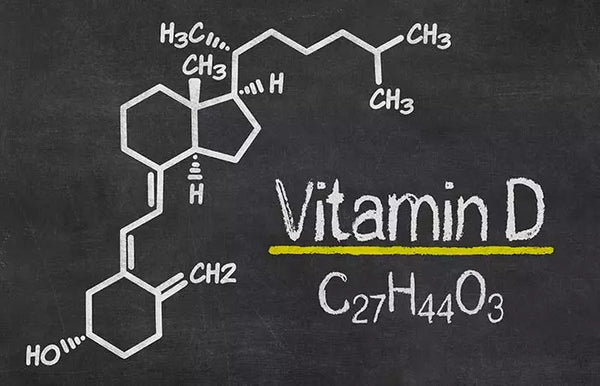
Recommended Vitamins for Kidney Disease Patients

Vitamins are important nutrients that the body needs. Vitamins work to help the body convert energy from food to prevent various diseases. However, the need for vitamins for kidney disease patients was different from healthy people.
Normally, people with healthy kidneys can get their daily vitamin needs from foods, such as meat, vegetables, and dairy products. Unfortunately, this does not apply to patients with kidney disease, especially those on dialysis.
Your diet may be limited to certain types of food. As a result, you do not get the vitamins you need every day. So, your doctor may suggest a list of vitamins below, especially in supplement form.
Normally, people with healthy kidneys can get their daily vitamin needs from foods, such as meat, vegetables, and dairy products. Unfortunately, this does not apply to patients with kidney disease, especially those on dialysis.
Recommended Vitamins for Kidney Health
Your diet may be limited to certain types of food. As a result, you do not get the vitamins you need every day. So, your doctor may suggest a list of vitamins below, especially in supplement form.
1. Vitamin B6
Read: Amazing Benefits of Vitamin B6 For Pregnancy and Breastfeeding
The first vitamin for kidney disease patients is Vitamin B6 (pyridoxine). Vitamin B6 is a water-soluble vitamin that is good for kidney health. This is because pyridoxine is claimed to reduce urinary oxalate excretion, which is one of the risk factors for calcium oxalate kidney stones.
In addition, this type of vitamin works together with other B-complex vitamins to prevent anemia. This anemia problem often occurs in kidney disease patients who are undergoing dialysis (dialysis).
You can meet your daily vitamin B6 needs from supplements and foods, such as fish, beef liver, and avocados.
2. Vitamin C
Read: Amaazing! This is How Vitamin C Helps Your Body
The second vitamin for kidney disease patients is vitamin C. Vitamin C turns out to play an important role in maintaining the health of kidney disease patients. This vitamin helps the body absorb iron, helps produce collagen, and keeps the immune system healthy.
The benefits of this vitamin, another name for ascorbic acid, are really needed in maintaining the health of patients with kidney disease.
Even so, too much ascorbic acid can cause a build up of oxalate in the body in chronic kidney disease patients. Therefore, ask your doctor how much vitamin C you need daily to prevent new problems.
3. Vitamin D
Vitamin D is the next recommended vitamin for kidney disease patients. Kidneys are organs of the human body that have an important role in helping the body process vitamin D (calciferol).
Vitamin D can come from two things, namely exposure to UVB radiation or absorption from food or supplements.
The function of the kidneys here is to convert the calciferol that the body catches from supplements or the sun into an active form that is useful for your body. On the other hand, low levels of this nutrient tend to be found in people with chronic kidney disease.
Damaged kidneys cannot function properly in converting calciferol into its active form. Not surprisingly, the daily need for vitamin D in people with kidney disease needs to be met with supplements and special diets for kidney failure.
4. Folic acid (Vitamin B9)
Read: Various Kinds of Vitamins and Their Benefits
Vitamin B9 as a recommended vitamin for kidney disease patients turns out to offer a myriad of health benefits, including for kidney disease. According to a study from the JAMA Network, folic acid supplement therapy in chronic kidney disease helps slow the progression of kidney damage.
This is seen in patients who also have hypertension with mild to moderate chronic kidney disease.
What's more, folic acid helps reduce the risk of anemia, which often occurs in people with kidney problems.
5. Vitamin B12
The kidneys are important in filtering nutrients from the blood and lymph, including vitamin B12 (cobalamin).
Meanwhile, patients with chronic kidney failure or acute kidney injury have high levels of vitamins and other nutrients in the urine. This means that these nutrients are not fully absorbed by the body.
You can be at risk of anemia if homocysteine levels in the blood indicate that the body lacks vitamin B12.
Therefore, patients with kidney disease, especially those on dialysis, need more cobalamin intake to prevent this.
Thus our articles about recommended vitamins for kidney disease patients, hope this information is useful!






